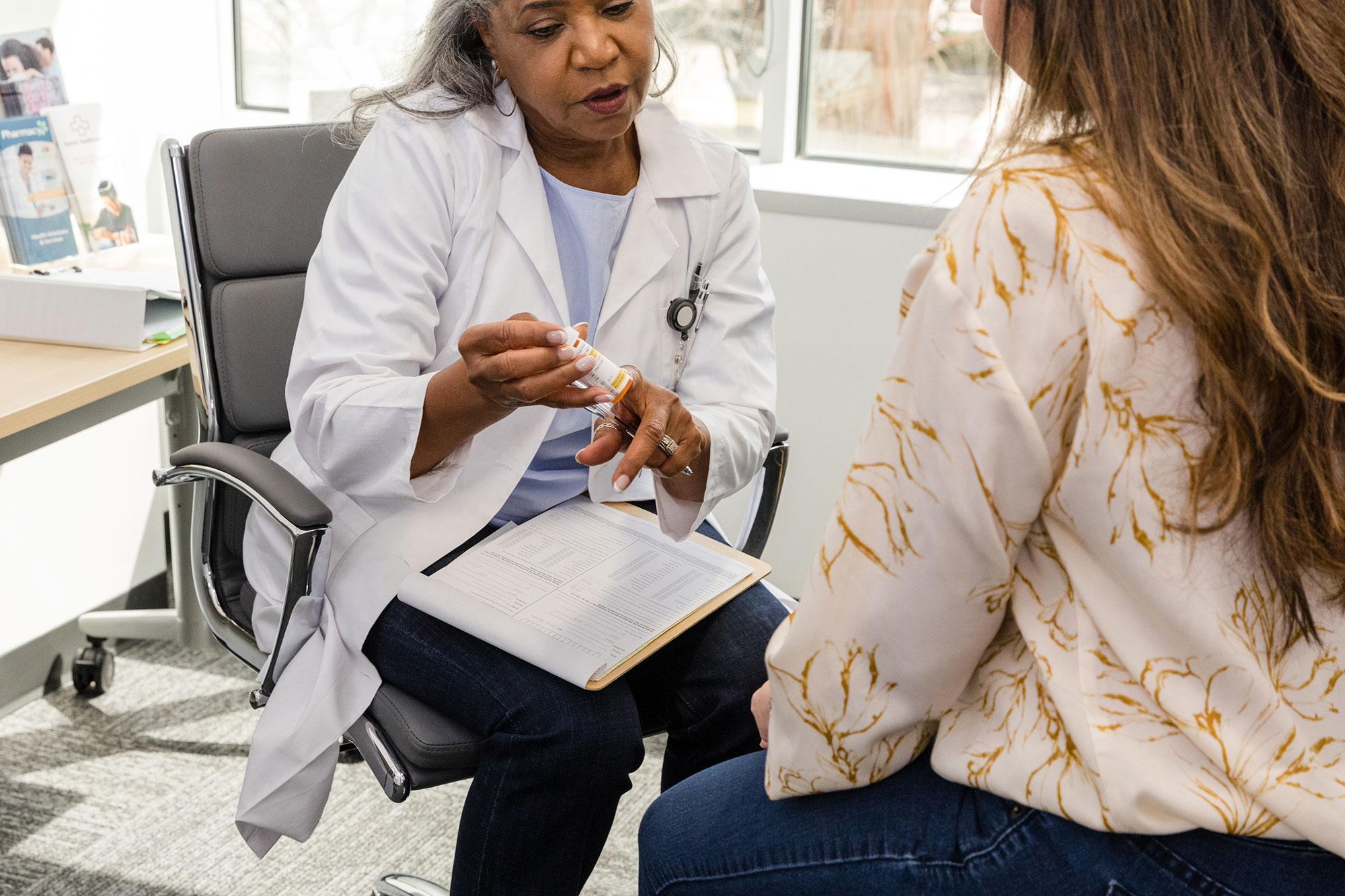Getting a grip on pointless antibiotics prescriptions

Patients often push their doctors to prescribe antibiotics unnecessarily, increasing bacterial resistance. More trust in patients could help here. This is the surprising outcome of a study supported by the SNSF.
Five million people die each year from bacterial infections because the pathogens are resistant to antibiotics. According to the World Health Organisation (WHO), this figure will double by 2050. Innovative new agents and therapies could help slow this trend. However, the responsible use of these drugs is at least as important.
"What interests us is the extent to which human behaviour contributes to exacerbating the resistance problem," says communications researcher Peter J. Schulz, who is receiving support from the SNSF. "This will enable us to break the wrong patterns." His team at the Università della Svizzera italiana USI has now discovered an important influencing factor for this – the trust that general practitioners (GPs) place in their patients.
Around 90 percent of all antibiotics are prescribed in GP offices. However, some of these prescriptions are useless, for example in the case of viral illnesses such as the common cold since antibiotics only work against bacteria. Nevertheless, patients frequently ask for a prescription even if this is not advisable from a medical perspective. And sometimes they get what they want.
According to Schulz, the reasons for this vary, although time pressures during consultation hours and a lack of assertiveness are likely to play a role. "We need clear boundaries in medical practice if we really want to break the resistance cycle." In a recently published study*, he therefore analysed the interaction between doctors and patients for the prescription of antibiotics. Such studies, which take both perspectives into account, are rare.
Men ask for antibiotics more
The team canvassed eight GPs and 101 of their patients in Italian-speaking Switzerland. The patients provided information including whether they would actively request antibiotics from their GP. The evaluation identified some factors playing a role here.
People who considered themselves susceptible to illness and therefore preferred the most comprehensive treatment possible were more likely to ask for prescriptions. Men and less educated people also wanted a prescription more frequently. The researchers see a need to catch up in terms of communicating knowledge to these demographic groups.
The study also took note of the trust that the two parties place in each other. What the researchers had actually expected was that increased trust in doctors would correlate with a lower demand for antibiotics. To their surprise, this was not the case.
However, they did uncover another correlation: When doctors have more trust in their patients, the latter are less likely to ask for antibiotics. This observation applied regardless of gender. "What we're seeing here is likely to be an effect of interaction," explains Schulz. "Patients can tell that the doctor trusts them, and this in turn causes them not to ask." However, larger-scale studies will be necessary to understand this process in detail.
Trust in a correct self-assessment
Nevertheless, the findings could already be used today to reduce the unnecessary consumption of antibiotics, for example by issuing delayed or back-up prescriptions. These are prescriptions issued by a doctor that can only be filled after a few days. However, they may no longer even be needed by then, as harmless viral illnesses often improve on their own after a few days in the absence of a bacterial infection.
According to Schulz, this method has significantly reduced consumption in countries such as the Netherlands. He is now conducting a further study to examine whether this could also work in the Swiss healthcare system.
The key question is empowerment – that is, efforts to involve patients more in medical decisions. "In this case, however, this does not mean that patients will get antibiotics whenever they want," says Schulz. Instead, the doctor will trust the patient's ability to assess their own medical condition correctly. And only to take medication if it is really necessary.